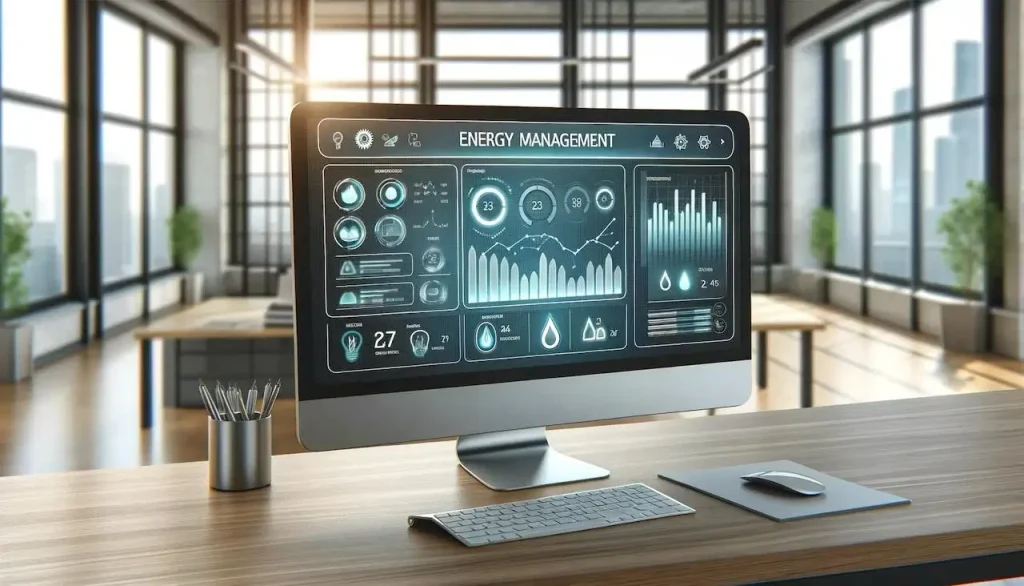Introduction:
In today’s fast-paced business environment, energy management has become an essential part of facilities management. As energy costs continue to rise and sustainability becomes a priority for businesses, effective energy management can significantly reduce operational expenses while contributing to environmental conservation. In this blog post, we’ll explore why energy management is critical and how it can benefit your business and facilities.
What is Energy Management?
Energy management involves the strategic planning, monitoring, and control of energy consumption in buildings and industrial facilities. It encompasses everything from identifying energy waste to optimizing energy-efficient systems and adopting sustainable energy practices. The goal is to ensure that energy is used effectively, economically, and in an environmentally responsible manner.
Why Energy Management Matters
Cost Savings Energy expenses can account for a significant portion of a company’s operational budget. With rising utility rates, controlling energy consumption is crucial for reducing costs. Through energy management, businesses can implement strategies such as upgrading to energy-efficient systems, optimizing heating and cooling processes, and implementing lighting controls that drastically lower energy usage.
Sustainability and Environmental Impact As more businesses embrace sustainability, energy management plays a crucial role in reducing carbon footprints. By adopting energy-saving practices, companies can decrease their reliance on fossil fuels, reduce greenhouse gas emissions, and contribute to a greener planet. Many organizations now prioritize energy efficiency as part of their corporate social responsibility (CSR) initiatives.
Improved Operational Efficiency An effective energy management strategy not only reduces costs but also improves the overall efficiency of your facilities. For example, regular monitoring and maintenance of HVAC systems, optimizing lighting, and using automation systems can ensure that energy is used where and when it’s needed most, enhancing productivity and operational performance.
Compliance with Regulations Government regulations and industry standards around energy consumption are becoming stricter. Having an energy management system in place ensures that your business complies with local, national, and international environmental standards. It helps you avoid penalties and demonstrates your commitment to sustainability.
Enhanced Brand Image Companies that prioritize energy efficiency and sustainability are often viewed more favorably by customers, investors, and employees. Promoting your commitment to energy management can differentiate your business in a competitive market and strengthen your brand’s reputation as an environmentally responsible company.
How to Implement Effective Energy Management?
Conduct an Energy Audit The first step in energy management is to conduct a thorough energy audit of your facility. This audit will identify areas where energy is being wasted and highlight opportunities for improvement. By understanding where your energy consumption is highest, you can develop a tailored strategy to reduce waste.
Invest in Energy-Efficient Equipment Upgrading your equipment and systems to energy-efficient models is one of the most effective ways to reduce consumption. For example, installing LED lighting, smart thermostats, and energy-efficient HVAC units can lead to significant long-term savings.
Implement Energy-Saving Practices Encouraging employees to adopt energy-saving habits, such as turning off lights when not in use, utilizing natural light, and operating equipment only when necessary, can result in noticeable energy savings over time.
Use Smart Technology Smart energy management systems allow businesses to monitor and control energy usage remotely. Automation tools can adjust lighting, heating, and cooling based on occupancy, time of day, and weather conditions. This level of control enables more precise energy management and reduces unnecessary waste.
Monitor and Optimize Continuous monitoring of energy consumption is essential for maintaining efficiency. Real-time data enables businesses to identify trends, spot inefficiencies, and make adjustments as needed. Regular reviews ensure that energy-saving measures remain effective over time.
Conclusion
Energy management is no longer a luxury for businesses—it’s a necessity. Not only does it help lower operating costs, but it also supports sustainability efforts, improves efficiency, and strengthens your brand’s reputation. By adopting a proactive approach to energy management, businesses can create a more cost-effective and environmentally friendly workplace that benefits both their bottom line and the planet.
Incorporating energy management into your business strategy isn’t just about saving money—it’s about positioning your company for future success in a world where energy efficiency and environmental responsibility are more important than ever.

